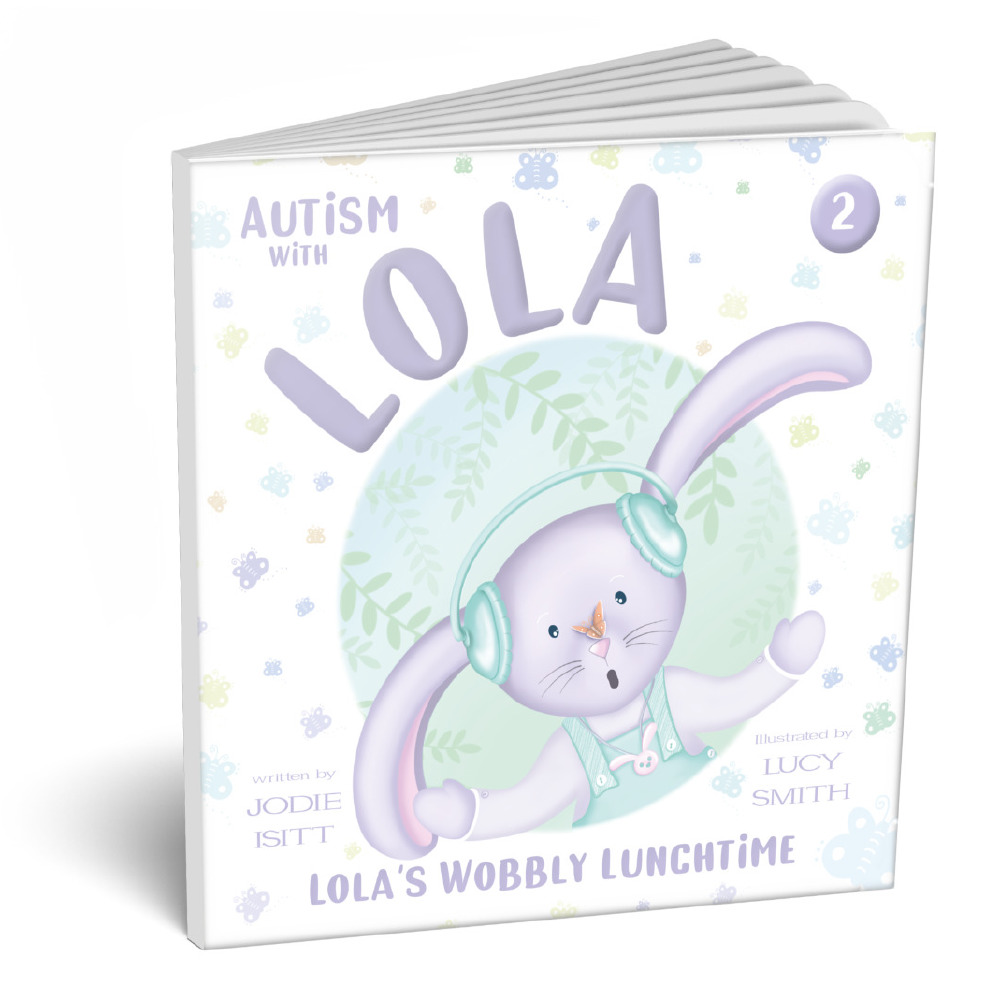There are millions of reasons I could tell you why it is important to teach your child to read about autism. Nobody can even estimate how many autistic people there are in the world because no one is tracking diagnostic rates which means that there are thousands of autistic people undiagnosed and there is nowhere near enough understanding and acceptance. Although diagnosis rates are improving, there is still a disproportionate amount of support available so that as a society we can learn best how to accommodate and understand those who are Neurodivergent.

Autism with Lola
Many autistic children and adults are put through intense waiting lists and assessments to be sent on their way with a letter confirming diagnosis. Many of these newly diagnosed adults, children and their families aren’t signposted to places in which they can begin to learn and understand about themselves or a loved one and feel lost and confused. Many aren’t even able to access services like speech therapy, or occupational therapy because of the barriers to services due to funding. We need to teach children about autism and other disabilities to bridge that gap in understanding thus leading to acceptance and inclusion of ALL people.
What better way to begin this journey than by teaching children from the outset that disabilities, autism, or other conditions aren’t abnormal. That when they meet someone outside of their “typical understanding of neurology” it’s okay. They are human, a person just like them and although they may see, do and understand things a little differently, they all want the same thing. A happy and healthy childhood where they can help each other grow and flourish into the most accepting, understanding, Neurodiverse generation that we have ever seen.
1. Encouraging your children to read simple explanatory stories about some of the difficulties these children face whilst young is important because their brains are still developing. Children soak up information and together with learning through direct experiences will enable them to build the foundations upon which to build positive relationships with their peers.
2. Supporting Autistics in the school environment is extremely important. Autistic people do not want someone changing their own neurology but someone who is supportive and understanding who can help them create acceptance. If young people are introduced to the differences in neurology in nurturing ways they will be way more likely to not only use this knowledge as they grow, to support people and peers close to them but to also pass their knowledge down like a chain reaction becoming the positive role models that the world needs in order for neurodivergent to become the norm.
3. They deserve to understand themselves. Their Neurology is fundamental to their identity, their very being and to be denied that is to encourage them to suppress, to be permanently confused and traumatised. Your child deserves to know why the world is a place that makes their life so hard, simply because the world doesn't understand them and wants them to be ‘normal' The more they understand themselves and self-accept, the stronger they will be, the more able to say "No."
This is who they are. Why would you deny them who they are? - Kieran Rose - The Autistic Advocate
Jodie Isitt is an author who writes gentle, inspiring stories for young children so they can understand diversity and disabilities. As the mother of three children who all with autism and additional needs, Jodie is using storytelling to help develop other children’s understanding of what it is like to live with autism and anxiety. You can find out more at Autism with Love and Jodie currently has a Kickstart campaign to raise £6,000 for her next book, Lola's Wobbly Lunchtime, and you can help HERE.

